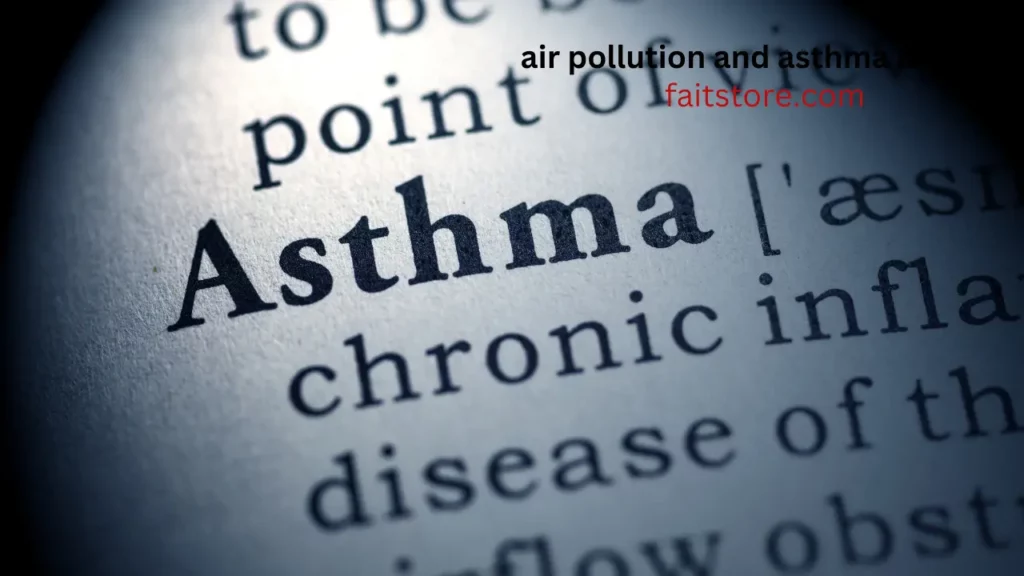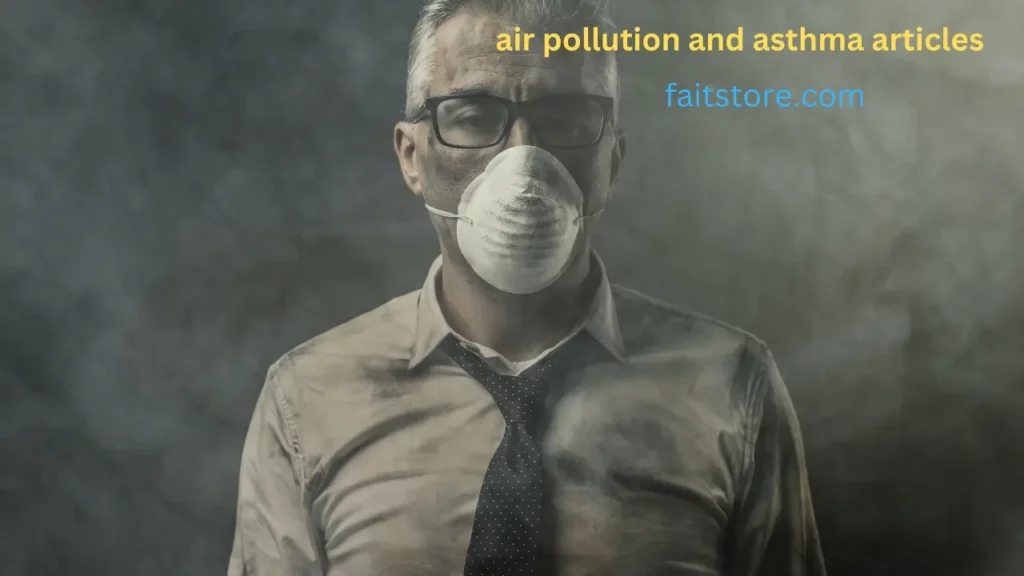Air Pollution and Asthma Articles: The Impact on Respiratory Health
Air Pollution and Asthma Articles: The Impact on Respiratory Health
Air pollution is a significant global concern affecting millions of people’s health and well-being. One particular group that is especially vulnerable to the detrimental effects of air pollution is individuals with asthma. In this article, we will explore the relationship between air pollution and asthma, understand the impact of air pollutants on asthma symptoms, and the measures to reduce air pollution for better asthma management. Air pollution and asthma articles.
Air pollution refers to harmful substances in the air that can adversely affect human health and the environment. It can be caused by natural sources such as volcanic eruptions and wildfires, as well as human activities, including industrial emissions, vehicle exhaust, and the burning of fossil fuels. Asthma, on the other hand, is a chronic respiratory condition characterized by inflammation and narrowing of the airways, leading to breathing difficulties.

Air Pollution
Sources of Air Pollution
Air pollution can originate from various sources, both natural and anthropogenic. Natural sources include dust storms, forest fires, and volcanic eruptions. Anthropogenic sources are primarily related to human activities such as industrial processes, power generation, transportation, and agricultural practices.
Types of Air Pollutants
Air pollutants can be categorized into several types, including particulate matter (PM), nitrogen oxides (NOx), sulphur dioxide (SO2), carbon monoxide (CO), ozone (O3), and volatile organic compounds (VOCs). These pollutants can be released directly into the air or formed through chemical reactions in the atmosphere. air pollution and asthma articles
Air Pollution and Asthma
Air pollution has long been recognized as a significant contributor to the development and exacerbation of asthma. Asthma is a chronic respiratory condition characterized by inflammation and narrowing of the airways, leading to symptoms such as coughing, wheezing, shortness of breath, and chest tightness. While various factors can trigger asthma attacks, air pollution is crucial in its onset and worsening.
Several components of air pollution, including particulate matter (PM), nitrogen dioxide (NO2), sulphur dioxide (SO2), ozone (O3), and volatile organic compounds (VOCs), have been implicated in the relationship between air pollution and asthma. These pollutants can be emitted from various sources, such as vehicle emissions, industrial processes, power plants, and the burning of fossil fuels.
Particulate matter refers to tiny particles suspended in the air, which can be inhaled deep into the lungs. These particles can irritate the airways and trigger inflammation, leading to asthma symptoms. Nitrogen dioxide, primarily released from vehicle exhaust and industrial emissions, can cause airway inflammation and increase the susceptibility to respiratory infections, thereby worsening asthma. Air pollution and asthma articles.
Sulphur dioxide, often emitted from the burning of fossils, can irritate the respiratory system and exacerbate asthma symptoms. Ozone, a secondary pollutant formed by chemical reactions between sunlight and pollutants like nitrogen oxides and volatile organic compounds, can also trigger asthma attacks by causing airway inflammation and reducing lung function.
Volatile organic compounds released from sources such as paints, solvents, and household cleaning products, can contribute to indoor air pollution and trigger asthma symptoms in susceptible individuals.
Exposure to air pollution can have short-term and long-term effects on individuals with asthma. Short-term exposure to high levels of air pollution, such as during smog episodes, can lead to acute asthma attacks and increased hospitalizations. Long-term exposure to chronic air pollution has been associated with the development of asthma in children and the persistence of symptoms in adults. Prolonged exposure to air pollution can also lead to the progression of asthma and increased medication use.

Comments
Post a Comment